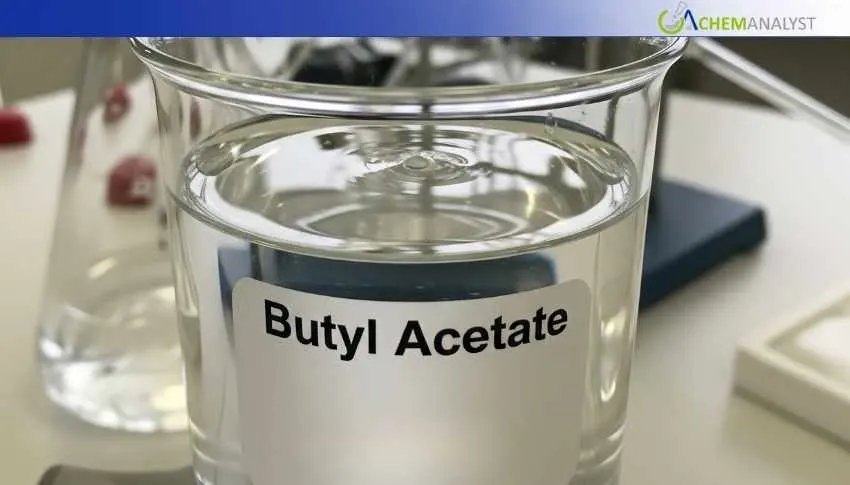Welcome To ChemAnalyst

During the August 2025, butyl acetate prices in Germany has declined. The market showed little momentum as feedstock costs for acetic acid and n-butanol held steady, offering limited cost support. Demand from coatings and adhesives remained weak, particularly due to Germany’s ongoing construction slowdown. Domestic production operated cautiously, with suppliers aligning output to match subdued demand. Logistics through Hamburg ran smoothly, and export activity focused on intra-EU markets, with minimal overseas interest due to high freight costs. Looking ahead, prices are expected to stay rangebound unless energy costs rise or Eurozone demand improves.
Butyl acetate prices in Germany have declined in second half of August. Cost inputs for acetic acid and n-butanol remained stable, and weak downstream recovery limited any notable price momentum. Producers managed their inventories against outputs, which at least held price lower down in the week. Furthermore, the prices of Feedstock and energy remained on the lower side leading to lower production cost.
Domestic Butyl acetate production continued at steady production levels, but cautiously, with suppliers aligning outputs with slow-moving demand. Energy inputs remained high, but not immediate pressure on margins, so producers essentially could hold current levels of domestic production. Logistics remained free flowing through Hamburg port. No major disruption of Butyl acetate were reported that would delay timely deliveries and supported reliability in supply. Butyl acetate export activity remained modest, with intra-EU buyers occupying key shipping lanes. Long-haul destinations...
We use cookies to deliver the best possible experience on our website. To learn more, visit our Privacy Policy. By continuing to use this site or by closing this box, you consent to our use of cookies. More info.
